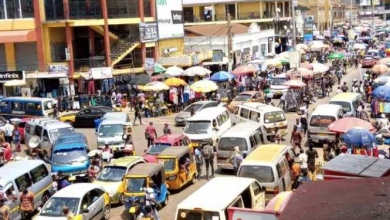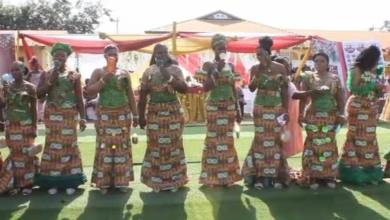Yaw Nsarkoh on Intellectual Apathy and National Failure

- Nsarkoh warns disengagement by Ghana’s elite endangers democratic progress
- He calls out the inflation of academic titles and unearned recognition
- Intellectuals urged to reclaim their role in public life and national development
Former Executive Vice-President of Global Markets at Unilever, Mr. Yaw Nsarkoh, has issued a clarion call to Ghana’s intellectual and professional class to shed apathy and actively participate in shaping the nation’s democratic future.
Delivering a compelling lecture at the Ghana Academy of Arts and Sciences on Thursday, June 19, Mr. Nsarkoh warned that Ghana’s democracy is at risk of deterioration without the active engagement of its educated elite.
Speaking on the theme “Iniquities of Iniquity in Our Santa Claus Democracy,” Nsarkoh described Ghana’s political environment as one increasingly driven by populism, transactional politics, and anti-intellectualism—trends he believes are enabled by the disengagement of the country’s thinkers and professionals.
“When intellectuals retreat, democracy suffers,” he argued, warning that the dominance of patronage over progress, and spectacle over substance, fosters mediocrity and entrenches inequality.
Nsarkoh emphasized that true democracy and development require more than economic growth—they must also confront poverty, marginalization, and political repression. Drawing inspiration from Amartya Sen, he highlighted the critical role of independent thought in meaningful progress.
He expressed concern over the decline of Ghana’s public universities, once vibrant centers of civic and academic engagement. Nsarkoh traced this decline to neoliberal reforms of the 1980s and 1990s, which he said deeply damaged Africa’s intellectual traditions and their democratic influence.
“All nations that have advanced did so by valuing and applying knowledge,” he stated, urging Ghana to rebuild policies that support original research, academic integrity, and critical thinking.
He also condemned the rise of pseudo-intellectualism, criticizing the media for inflating titles and celebrating hollow achievements.
“The institutional glorification of unearned accolades undermines merit and discourages excellence,” Nsarkoh said, calling for urgent reform to restore credibility and meritocracy.
In his closing remarks, Nsarkoh urged Ghana’s intellectual community to re-engage with national issues, warning that freedom cannot survive without active defense.
“No constitution alone can guarantee liberty to a people unwilling to fight for, cherish, and defend it,” he declared.
Nsarkoh’s address served as both a critique and a rallying cry—one urging Ghana to tap into its intellectual capital not just to drive development, but to preserve the soul of its democracy.






